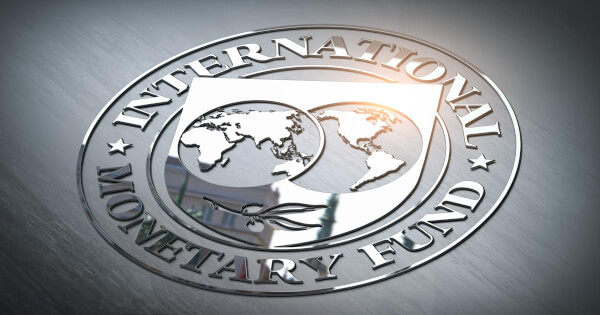IMF Prioritizes Regulation over Ban on Crypto
Luisa Crawford Mar 03, 2023 09:26
The International Monetary Fund (IMF) supports regulating digital money and prioritizes differentiating between central bank digital currencies and crypto assets, such as stablecoins. The IMF's Managing Director, Kristalina Georgieva, clarified that the nuclear option to ban cryptocurrencies remains on the table, but the agency would prefer to pursue good regulations, predictability, and consumer protection.

The International Monetary Fund (IMF) has expressed its preference for regulating crypto assets, including stablecoins, rather than imposing an outright ban. IMF's Managing Director, Kristalina Georgieva, stated during the G20 finance ministers meetings in Bengaluru, India that differentiating and regulating digital assets are the agency's top priorities. However, the IMF has not ruled out the option of banning cryptocurrencies entirely if they pose a significant risk to financial stability.
In a recent interview with Bloomberg, Georgieva said that much confusion still exists around the classification of digital money. The IMF's first objective is to differentiate between central bank digital currencies (CBDCs) that are backed by the state and publicly issued crypto assets and stablecoins. Fully-backed stablecoins can create a "reasonably good space for the economy," while non-backed crypto assets are speculative, high risk, and not money.
Georgieva cited a recent paper recommending global regulatory standards for crypto assets, which stated that they cannot be legal tender because they are not backed. However, if crypto assets begin to pose a greater risk to financial stability, the IMF would not rule out the option of banning them. Nevertheless, Georgieva emphasized that good regulations, predictability, and consumer protection would be the better approach, and banning would not need to be considered.
Georgieva explained that an inability to protect consumers from the rapidly evolving world of crypto assets would be the primary catalyst for banning cryptocurrencies. The IMF, the Financial Stability Board, and the Bank for International Settlements are jointly preparing to release regulatory framework guidelines in the second half of this year.
The IMF's stance on regulating crypto assets aligns with other global regulators, such as the G20, which also support establishing a regulatory framework for digital currencies. Some countries, including China and India, have taken a more aggressive approach and banned cryptocurrency trading altogether. In contrast, countries such as the United States and Switzerland have implemented a regulatory framework for digital assets, aiming to balance innovation and investor protection.
The cryptocurrency market has experienced significant growth in the last decade, with the emergence of Bitcoin and the subsequent proliferation of other cryptocurrencies. The total market capitalization of cryptocurrencies has surpassed $2 trillion, attracting the attention of investors and regulators worldwide. However, the market's volatility and the lack of regulatory clarity have raised concerns about the potential risks associated with investing in digital assets.
In conclusion, the IMF supports regulating the world of digital money and aims to differentiate between CBDCs and crypto assets to establish a regulatory framework for digital currencies. While the agency has not ruled out banning cryptocurrencies entirely, it would prefer to pursue good regulations, predictability, and consumer protection. The upcoming regulatory framework guidelines, jointly prepared by the IMF, the Financial Stability Board, and the Bank for International Settlements, are expected to provide a comprehensive regulatory framework for crypto assets.
Image source: Shutterstock.jpg)